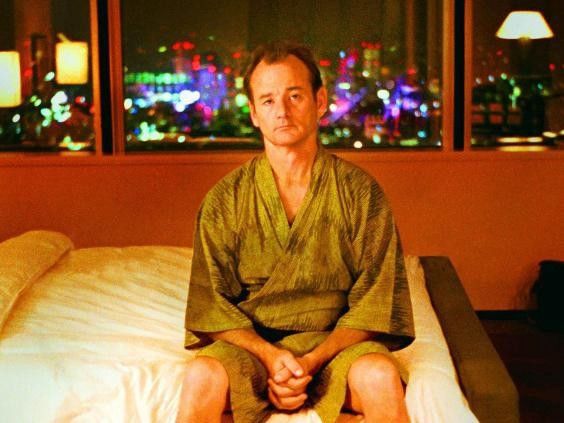"Personalisation" has become one of the hottest topics that travel industry executives love to talk about. But beyond the hype, what does it really take for travel brands to build a stronger relationship with their guests and win their loyalty?
The picture above has been in my pitch deck for GigsGuide for a long time. Some of my friends smile when they see it, commenting about how, no matter how many times I try to take it out, it has a tendency to always find its way back into the deck. The reason I feel particularly attached to it is that it actually describes extremely well one of the main reasons I started GigsGuide and where a key aspect of its deeper value proposition lies.
Being a frequent traveller might look glamorous to all those jealous friends commenting on Facebook about you jetting off somewhere nice again. To a certain extent, living a life on the road has its appeal and is something that I — like many others — have always considered a major perk of my professional life. At the same time, it also comes with a price to pay. Studies have highlighted a strong connection between intense business travel and a higher risk of being affected by mental health issues, such as anxiety and depression, trouble sleeping, smoking and alcohol dependence.
This isn’t hard to understand when you consider that the typical business traveller is a male between 35–50 who 4 out of 5 times is travelling alone ( source — pdf). These are the guys you see sitting on their own having dinner in the hotel restaurant or a drink at the hotel bar on a Tuesday night, the not-so-glamorous part of business travel.
These are, however, also the prime targets of any loyalty program, the big spenders that airlines and hotel chains want to attract and retain.
Personalisation for whom?
It is not difficult to understand why people prefer to buy from brands they have an emotional connection with. This has particularly strong implications for the travel industry, an extremely competitive business whose entire value proposition is ultimately based on helping people experience something different, unique and exciting.
There is a lot of talk about personalisation, customisation and "creating moments that matter" in the travel industry these days. I have been a frequent traveller for over 10 years, but being new to this other side of the industry (and maybe a bit naive), I originally thought the objective of all this talk was to answer the question "what can I do to build a stronger relationship with my customers/guests". Yet, with time I am realising that for many it really just boils down to "what else can I sell them".
Unsurprisingly, the result is that travellers keep getting flooded with the same generic offers that have no relevance to them and campaigns that rely on ever deeper discounts to compensate lack of imagination and inspiration (for an account of how annoying and off-putting this type of tactic really is, check out this excellent post by Vikram Singh).
There is a quote from May Haukedahl Wilson, Head of Partnerships — Norwegian Reward at Norwegian Air Shuttle, in the "Travel Loyalty Report" that EAN and Points.com recently compiled that summarises the issue pretty well:
"Research shows the customer experience is a more important loyalty factor [than discounting]. However, discounting is an easy solution for many as you see an instant effect. Many companies tend to be a bit impatient in wanting to see results."
With my "frustrated frequent traveller" hat on, I honestly not only wonder about how well this type of approach really converts, but also about whether this "going through the motions" doesn’t also end up having a more profound negative impact on the effectiveness of a loyalty program in acquiring and retaining the best customers.
Consider this: no online review ever talks about the "great discount" the reviewer got unless it is to counterbalance the fact that the service/experience was not exactly up to their expectations ("Hey, at least it was cheap!"). On the other hand, what most positive reviews have in common is that they are often a reflection of how truly welcome and special the guest was made feel. It's the staff member going out of their way to accommodate a wish. Or something small and unexpected, like a hand-written note or a free bottle of champagne when you check into your room on your birthday. This deeper, more genuine kind of connection is, in my opinion, also one of the underlying reasons of AirBNB's incredible success. It's a key ingredient of their secret sauce that they are actually risking losing as growing numbers of professional property managers replace the original home-owners who, beyond renting out a spare bedroom, knew how to make their guests' stay truly unique and special.
The secret to being "a good host"
Back to my lonely guy at the hotel bar, the reason I am so attached to this picture is that he is really just a younger, more attractive version of myself. And every time I show that pitch deck and that slide, someone inevitably comes up to me afterwards mentioning how much they recognised themselves in that image too. How often they too have felt isolated and alienated, spending the evening in a hotel bar or working some more in their room simply because they didn’t know what else to do. And then, to add insult to injury, the frustration of leaving the hotel the morning after and catching a glimpse of a poster of an event they would have loved to attend. Last night. While they were sitting at the hotel bar on their own. If only they had known about it.

GigsGuide is born out of that frustration. Providing each traveller with a list of events taking place around them, curated based on their individual taste, helps killing FOMO (Fear of Missing Out) and puts them back in control over their own time. With that creeping "Lost in Translation" sensation gone, the decision of whether they want to go out and see that show, or stay in and enjoy a quiet night watching TV in their room is completely their own and not simply the result of unfortunate circumstances.
While it is hard to put a specific, direct monetary value on that feeling of being in control, there is no doubt that providing a service that makes each of your guests feel seen and appreciated is the best way to build that kind of connection that turns you from a "provider of beds" (or seats) — an entry in a long list on Booking.com, a commodity easily replaceable when your only argument is how deep a discount are you willing to offer — into the brand the guest wants to choose every time.
Imagine, for instance, what a strong message would a hotel — or a group of hotels around the same location — send if they ran some kind of regular "social dining" events for solo travellers, giving them the opportunity to meet fellow travellers casually without the embarrassment of having to walk up to a random stranger asking if it's ok to join them.
Beyond points, the occasional room upgrade or a voucher for a complimentary drink at the hotel bar, it all boils down to what kind of host you want to be and what level of interest are you really willing to take in your guests' well-being. Your general communication, your loyalty program and ultimately every single action you take should be a genuine reflection of that.
You might end up realising that sometimes you do your best "sales" when you are not trying to sell anything at all.

